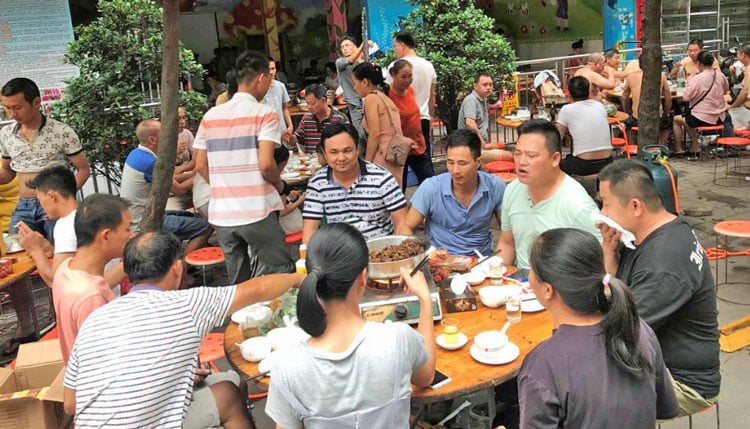NEWS AND VIEWS – OPINION – PLEASE LET ME HEAR YOURS TOO: Four Paws, an animal welfare organisation has investigated the cat meat trade in Vietnam. The Independent newspaper reported it. I don’t know whether you should read it. It is too upsetting. It is too nasty and grisly and unpleasant. Steel yourself, please.
They report that more than three million cats are slaughtered in Vietnam for their meat every year. We do know that they are killed in the most brutal of manners such as being boiled alive, electrocuted, drowned or hit with a hammer. You want to go on? You get the message is don’t you? I want you to be as angry as me. I want people to complain about it. I know it is a tricky subject because of cultural differences and sensitivities. But it is obviously immoral. For me that means we have a duty to highlight it and complain. Please don’t complain to me about writing on this topic. I do it because my heart hurts for these cats.

I have deliberately not published the more digusting pictures.
Schizophrenic society concerning relationship with domestic cats in Vietnam
There is a complete insensitivity to all the normal basic standards of society in respect of the cat-human relationship. Animal welfare standards been thrown out of the window with respect to the human-cat relationship in Vietnam. There is nothing left of it. It’s just war against the cat. And I suppose there are some households in which you will find a happy domestic cat but just down the street you’ll find a high street vendor selling cooked domestic cat, someone’s damned pet. And you will see a whole cat hanging from a hook above his stall. It’s completely schizophrenic. How do these circumstances coexist?
I’m told by this report that a live cat is sold for around £5 a kilogram and one kilogram of raw cat meat costs £6.50. The meals at restaurants cost £5. And, in an ironic twist to the usual conventions in the West, black cats are more valuable than any other. They sell them alive for £6.50 a kilogram but their meat can fetch far more at £16.50 a kilogram.

Black cat healing properties
Perhaps eating black cats bring them luck. Or whatever superstition do they have? Why do black cats cost more? Well, they believe that eating black cat has a healing effect. We don’t know what it heals but it appears to be a superstition linked to others of which there are many concerning the black cat. I really feel sorry for the black cat on this planet. The number of superstitions regarding it are ridiculously horrendous.
Growing trade
Eating cat meat dishes in Vietnam is growing in popularity in parallel with a growth in popularity of domestic cat ownership as pets. As I said, the country is schizophrenic with respect to the domestic cat.
Ealing cat meat is particularly popular in the North but popularity is growing in the south as far as Ho Chi Minh City, the investigation found. Some restaurants buy directly from thieves and they slaughter the cats on site but most buy their cats or cat meat from wholesalers or slaughterhouses.
Stealing domestic cats with collars
The investigation found that cats are normally stolen from the tourist resorts of Dar Nang and Hoi An in central Vietnam. Many of the cats stolen had collars clearly indicating that they were someone’s pet. Many cat owners were desperately looking for their stolen cats. The authorities disregard their pleas for help because they are often involved in the trade by taking bribes or they eat cat meat themselves.
Brutal transportation
Lola Webber, the co-founder of Change the Animals Foundation said that wholesalers keep the cats crammed in cages for days until their numbers have grown large enough for them to be transported to slaughterhouses.
The cats are transported hundreds of kilometres without sufficient ventilation, water or food. Sometimes they use the luggage compartments on passenger buses to transport the cats. They say that up to 200 cats have been seen in cages on these buses.
Many of the cats die of heat stroke, dehydration, injuries or exhaustion during these journeys. When they arrive at the destination they are inhumanely killed. Their fur is removed and the skin burned before they are gutted and frozen.
Zoonotic disease
We have to touch on the coronavirus pandemic. It is this sort of relationship with animals that creates incubators for zoonotic diseases to take effect and transmit disease from animals to people. Is humankind prepared to learn lessons?
Younger generation consider cat meat exotic
Sadly, in Vietnam, it appears that younger generations consider cat meat to be an exotic delicacy. For older people, they eat it out of custom and superstition. Some believe that eating cat meat defends them against bad luck.
Shipped from China as running out of stocks
Many frozen cats are shipped in from southern China because the domestic and stray cat population in Hanoi has been decimated by the increased trade in cat meat.
Government has deaf ears
Four Paws and Change for Animals are urging the Vietnamese government to ban the trade and also to strengthen and enforce laws regarding the theft of cats. I can tell you with absolute certainty that their pleas will fall on deaf ears and nothing, absolutely nothing will change. So let’s just think about this for a second. If you read half this article, during that time I suspect that hundreds of cats have been brutally murdered for their meat.

